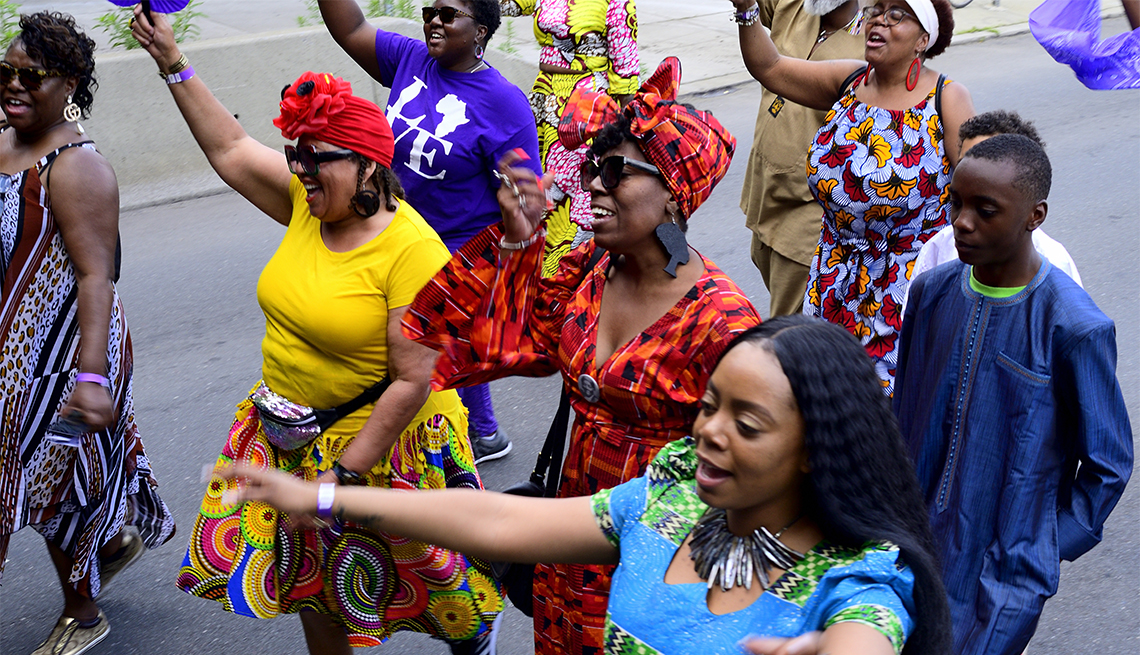Many believe that slavery ended in 1863 with the Emancipation Proclamation. And while this may have some truth, as The National Museum of African American History and Culture states:
“Not everyone in Confederate territory would immediately be free. Even though the Emancipation Proclamation was made effective in 1863, it could not be implemented in places still under Confederate control. As a result, in the westernmost Confederate state of Texas, enslaved people would not be free until much later.”
June + Nineteen= Juneteenth
It wasn’t until June 19, 1865 when union troops arrived in Galveston Bay, TX that freedom actually rang for people still enslaved. Juneteenth became the official day of freedom (June +19th= Juneteenth). The National Museum of African American History and Culture says:
“The army announced that the more than 250,000 enslaved black people in the state were free by executive decree. This day came to be known as 'Juneteenth,' by the newly freed people in Texas.”
Slavery Ended but that Didn’t Mean Freedom
Black people in America have liberties, only enough freedom to make decisions to alternatives approved by the government. We can’t marry more than one person, we can’t legally consume plants like peyote, we are restricted from traveling outside of imaginary borders without the government knowing about it; the list can go on and on.

Photo credit: AARP
Black Codes, Jim Crow laws, the Reconstruction Era, alcohol prohibition, and a new way to target black people through the Harrison Narcotics Act all came into when slavery ended. America had to ensure that black people weren’t really free. In 1865 and 1866, new southern state legislatures passed restrictive “Black Codes”, which were enforced throughout the south following the Civil War.
After the civil war, a period called Reconstruction was initiated; both Black Codes and Reconstruction limited the rights of Black people. This set of restrictions exploited Black people as a labor source. The 1865 ratification of the 13th Amendment prohibited slavery and servitude in all circumstances “except as a punishment for crime.”
This gave the south a loophole which resulted in those states criminalizing activities that would make it easy to imprison Black people. This made it easy to force black people into servitude once again.
Recognizing Juneteenth
There are many ways to celebrate Juneteenth and America should! America should honor the lives that built this nation. We shouldn’t do it the way WalMart attempted to, you know, as a celebration of capitalism. Instead of making ice cream and napkins, why not elevate a black owned business by sharing their website with your network?
Mindfulness around cultural appropriation is important. Very Well Family makes a great point about celebrating Juneteenth as a non-Black Person:
“You should be aware of the concept of 'cultural appropriation,” the practice of adopting race-specific cultural practices as your own without proper attribution or credit and in ways that further exacerbate racial oppression.
For example, there is nothing wrong with celebrating Juneteenth as a non-Black person at home or with others. Supporting Black organizations and educating yourself about Black history and culture is also great. But it might be less appropriate for a non-Black person to partake in Juneteenth customs like wearing African-themed clothing or performing traditional African dances.”








0 comments